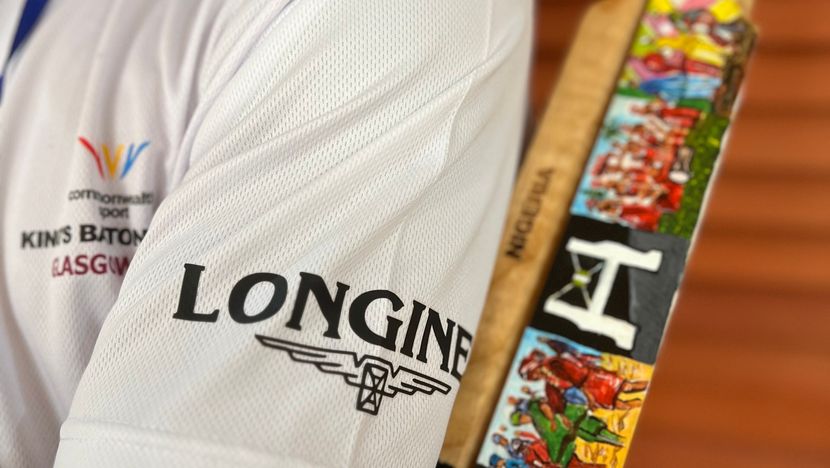As the Baton travelled through Nigeria, it carried the soul of the nation, etched into its very surface. Among the symbols featured were Zuma Rock in the north, Olumo Rock in the west, and the Ogbunike Caves in the east. These landmarks were chosen for their cultural and historical significance.
At the heart of the design, a green and white map of Nigeria represented unity and peace. The Baton also featured a depiction of the Abuja city gate, a familiar landmark that greets all who enter the capital. Together, these symbols told a story of identity, resilience and belonging, ensuring that every hand the Baton passed through also held a piece of Nigeria.
The visit began on 1 July with the presentation of a red UK phone booth to Commonwealth Games Nigeria, donated by the British High Commission. Set against a backdrop of traditional dance and drama, the gift served as a symbol of the connection between Nigeria and the United Kingdom. This echoed the shared values that underpin the Commonwealth Games movement.
More than 300 people gathered at the National Stadium as three athletes carried the Baton around the venue. They passed it first to the Secretary-General of Commonwealth Games Nigeria, Babatunde Popoola. From there, it was passed to CGN President Habu Ahmed Gumel, then to representatives of the National Sports Commission, and finally to Senator George Akume, who was standing in for President Bola Ahmed Tinubu. In a spirited display, all delegates took part in a brief jog with the Baton on the track before it was handed to the next group of participants.
The following day, the relay continued at Aduvie International School, a CGN partner school in Abuja. Around 600 students and guests gathered to welcome the Baton. The event began with a health talk delivered by a doctor from the National Sports Commission’s medical department. Students then took to the field with march pasts, cultural dances, gymnastics, karate and music that reflected the vibrancy of Nigerian youth and tradition.
Following speeches by Habu Ahmed Gumel, National Sports Commission Chairman Shehu Dikko and Director-General Bukola Olopade, the Baton was handed to the school principal, who passed it to Abaiola Joy Jonathan, a student who had also served as a Batonbearer during the Birmingham 2022 relay. She ran with the Baton before handing it to the school’s 3x3 relay winners. A group photograph with students and delegates closed the event.
The day concluded at Jabi Lake, where athletes from the Nigeria Rowing and Canoeing Federation joined CGN officials, the National Sports Commission, volunteers and members of the Royal Commonwealth Society in a plastic clean-up as part of the Commonwealth Clean Oceans Plastics Campaign. In a first for the relay, Nigeria took to the water by canoe, paddling for plastic as part of their contribution to the campaign. Over the course of three hours, 276 volunteers collected 4,722 pieces of plastic waste, weighing more than 151 kilograms.
The collected plastic was delivered to a recycling company in Abuja for processing. Wearing gloves and working together along the lakeshore, participants reinforced the campaign’s message of collective action and environmental responsibility. The clean-up brought together athletes, administrators and community members in a shared effort to protect local waterways and contribute to the wider goal of preventing one million pieces of plastic from entering the environment across the Commonwealth.
Earlier in the day, students performed traditional dances representing Nigeria’s three major ethnic groups: Yoruba, Igbo and Hausa. Each performance carried distinct rhythms, costumes and movements rooted in the histories of their regions. Brought together on the same stage, they became a shared celebration of identity and unity.
The Baton’s presence added meaning to the moment, linking the past and present through music, movement and the values of the Commonwealth.
Nigeria first competed at the Commonwealth Games in 1950 and has since grown into one of Africa’s leading sporting nations. The Baton Relay also came at a time when Nigeria is exploring a potential bid to host the 2030 Games. It offered an opportunity to reflect on Nigeria’s sporting journey and reaffirm a commitment to the values of friendship, humanity and equality that define the Commonwealth Games.
From the streets of Abuja to the waters of Jabi Lake, Nigeria’s contribution to the Baton’s global journey left a lasting impression. The Relay continues across Africa towards the Glasgow 2026 Commonwealth Games.
